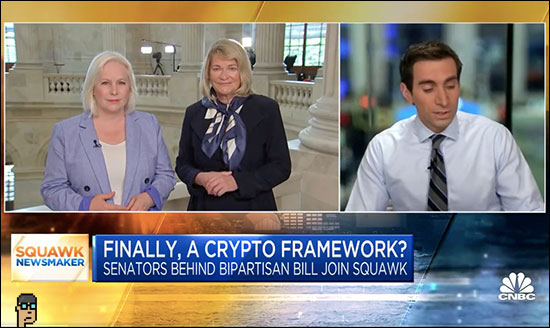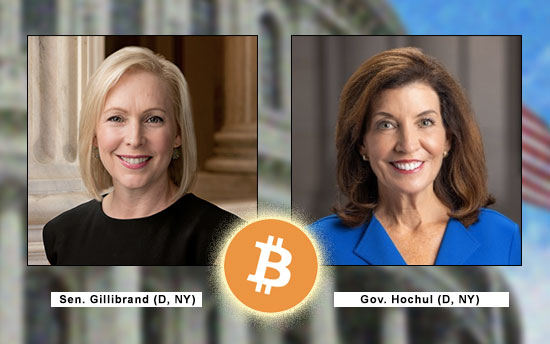This morning at Bloomberg’s Crypto Summit in New York City, Senator Cynthia Lummis (R, WY) and Senator Kirsten Gillibrand, (D, NY) continued their outreach to the blockchain industry with a 15-minute, recently recorded fireside chat on the Responsible Financial Innovation Act (RFIA) with Bloomberg’s Allyson Versprille. The chat featured familiar talking points as well as a deeper discussion on timelines and attainable milestones for their bill and components of it.
The Highlights
Senator Lummis said specifically that the stablecoin part of the bill could “go through” the Senate Banking Committee on which she sits this year led by Senator Pat Toomey (R, PA).
The total RFIA bill will likely take until and through next year said Senator Lummis. Senator Gillibrand emphasized bi-partisan participation on behalf of Democrats noting Senator Wyden’s (D, OR) participation on tax provisions as well as overall participation by Democrats in the Senate Banking and Agriculture Committees.
Continuing to address RFIA’s momentum, NIST‘s cybersecurity piece could move forward on the Intelligence Committee of which Senator Gillibrand is a member. Gillibrand added that she and Senator Lummis are actively educating Congress on their bill. Senator Lummis emphasized bi-partisan education on Senate Banking as well as keeping Republican leadership informed on timelines. She also said, on the House side, that Maxine Waters (D, CA) and Patrick McHenry (R, NC) are “coalescing” on thoughts related to RFIA.
Continue reading “Senator Booker May Co-Sponsor RFIA Bill; Stablecoin Bills are “Meld”-ing”






